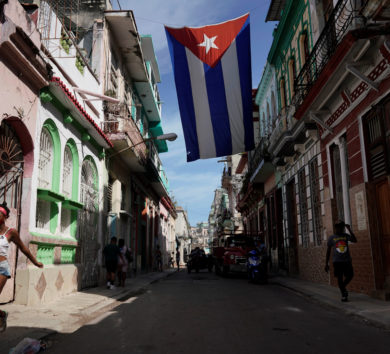

The Ecumenical Education Committee, a body of Churches and Trusts who act as owners of a number of primary and secondary schools in Jamaica, is today (March 17) expressing its displeasure with the Jamaican Government’s proposed Sixth Form Pathways Programme (SFPP) in its current state.
In a statement, the committee articulated its awareness that “Jamaica’s education system has fundamental weaknesses that need fixing,” and that, much like the Government, it is concerned by these weaknesses.
Noting that the performance rankings of schools operated by Churches and Trusts identify them as “a cut above the rest”, the committee said it insists on collaborating with the state “to improve the outcomes for our children and to facilitate their transition from adolescence into adulthood in a manner that will make them useful, well-rounded, and moral citizens”.
As a result of this, the Churches and Trusts, while “supportive of efforts to lengthen the period of high schooling,” has taken issue with the manner in which the Government has approached the matter.

The committee informed: “The nature of the partnership agreement between the Churches/Trusts and the State embodied in the Education Act 1965 and Code of Regulations 1980, means that both sides need to show due respect for each other and work together to achieve their common goals.
“However, the way this issue – and some others – have been approached is not consistent with the mutual respect and consultation required for our partnership.”
The Churches and Trusts indicated that not only were they excluded from consultations with the Government during its drafting of the SFFP, but as partners of the State, to date, they have only received directives.

As such the committee stated it was concerned about the proposal for the Sixth Form Pathways Programme (SFPP) for the following reasons:
- Space & Resources: The Ministry document outlining the SFPP gives the main reason why only 35 per cent of the students completing Grade 11 transitioned to a Sixth Form Programme as: “the fact that most secondary schools do not have the physical capacity to accommodate their full Grade 11 cohort at Grades 12 and 13”. The SFFP as announced makes no provision for addressing the space problem for September 2022, which will remain if any of the 65 per cent are retained in the institutions, many of which are already at capacity or over capacity.
2. Financing: The SFFP plan as announced withdraws the ability of schools to charge fees at the sixth form level. It is these fees that some schools presently use to help balance the loss of fees that used to be collected from parents whose children were in Grades 7-11. The plan as announced does not address the inevitable shortfall.
3. Unqualified to advance: There are still a significant number of Grade 11 students who do not achieve the minimum acceptable levels in most subjects they sit at CSEC and are largely incapable of advancing to higher levels of education.
4. In loco parentis: The SFFP plan as announced provides that students who do not go to the traditional sixth form, but are placed in other institutions, remain on the roll of the original school, and are their responsibility; the SFFP document states “Secondary Principals are however required to continue to monitor their students engaged in Grades 12 and 13 at tertiary institutions”. In law, the administration of a school acts “in loco parentis” and is responsible (and liable) for the students in their care. It will be impossible for the school to be responsible for students who are not attending classes on their campus, which leaves all concerned at risk. This provision needs to be changed.
5. The Patterson Report: The government established a Commission chaired by Prof. Orlando Patterson which is expected to assess the way to transform the Jamaican education system as a whole. One would have thought that a plan such as this would have been informed by the recommendations of this Commission. We do not know whether this proposal was influenced in any way by the Patterson Transformation Plan, and we would have preferred if it was.
6. Problems at the Early-Childhood and Primary levels: The general incapacity of Jamaican students begins with the weaknesses at the Early Childhood and Primary levels of the Jamaican education system. While these problems persist, the need to be constantly remediating right up to Grades 12-13 will remain.
7. COVID impact: There is a very pressing priority to address, and that is the damage done to students’ learning by the COVID impact on schools. It is clear that almost one in three students have been totally outside the online learning platforms and have basically missed two years of schooling. Even those who have been attending have shown poorer performances than usual. Getting students back up to satisfactory standards of achievement after the pandemic will be a massive challenge needing innovation and resources. It should take priority over the compulsory continuation of education beyond Grade 11.
In closing, the committee stated: “All of the above issues indicate the unworkability of the SFFP as currently proposed, and are matters which the Churches and Trusts are prepared to discuss with the government in furtherance of a successful redesign and phased implementation or piloting of the initiative.
“We stand ready to meet to address the situation and determine jointly what are the most pressing priorities and the best ways forward for education at this time.”







Comments